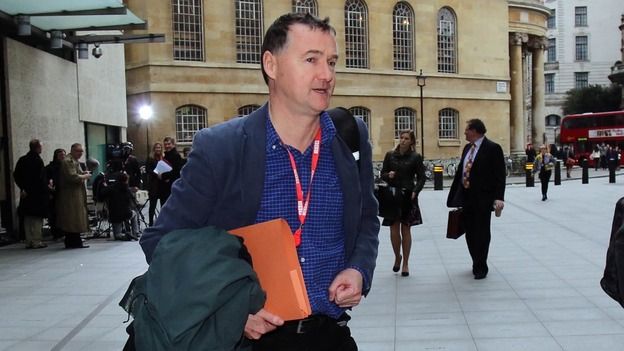
The former BBC journalist who tried to expose the Jimmy Savile scandal, claims that he had been ‘forced out’ of his job along with other colleagues who were ‘on the right side of the argument’
Meirion Jones, former head of investigations at Newsnight, claims that whistleblowers had been either squeezed out or moved into dead-end roles after they helped expose the paedophile. He said that the way he, along with other journalists who complained about the way the BBC handled the scandal, were pressured to leave.
Jones told the Press Gazette: that those who tried to expose the handling of the case were seen as “traitors” while executives who tried to suppress the scandal had continued their careers unhindered. “People said they won’t sack you after Savile but they will make your life hell. Everyone involved on the right side of the Savile argument has been forced out of the BBC”.

BYPASS THE CENSORS
Sign up to get unfiltered news delivered straight to your inbox.
You can unsubscribe any time. By subscribing you agree to our Terms of Use
The publication of an independent investigation into sexual abuse at the BBC was indefinitely delayed in May after police said it could prejudice ongoing investigations.
The Guardian reports: “There is still sadly a small group of people at the BBC who think that the only problem with Savile was that it was exposed and if it had stayed hushed up, everything would be fine.”
Jones’s investigation into Savile was pulled by then Newsnight editor Peter Rippon in December 2011, just weeks before a tribute to the presenter – who is thought to have abused hundreds of children over decades – was broadcast.
Jones said he was told by an employment lawyer that if he sued the BBC, he would win and there would be “no cap on it because it will be a whistleblower case”, but the corporation would fight the case for at least a year before settling. Instead, Jones said he decided to take voluntary redundancy.
Among those who Jones says were also targeted by bosses over Savile included his colleague on the the investigation, Liz Mackean, who left after 23 years with the corporation in April 2014 and now works on Channel 4’s Dispatches.
Mackean told Press Gazette: “I didn’t feel encouraged to stay. I felt I would do better to work outside the BBC.”
Jones and Mackean gave evidence to the Pollard inquiry, which found that “rigid management chains” meant the BBC proved “completely incapable”of handling the Savile case. However, it decided Rippon’s decision to pull the Newsnight investigation was “done in good faith” without undue pressure from senior management.
Jones says he and Mackean were told they “would never work for the BBC again” if they co-operated with a Panorama investigation into the scandal called What the BBC Knew. “Lots of efforts were made to block that Panorama,” he added.
He says the editor behind the programme, Tom Giles, and the executive put in charge of Savile coverage, Peter Horrocks, who forced it through, were also subsequently squeezed out.
Giles was shifted to a strategy role in May last year and left to become head of ITV current affairs a year later. Horrocks left the BBC earlier this year to become vice-chancellor of the Open University.
Jones also said the way the BBC treated one of Savile’s original accusers, Karin Ward, when she was sued by Freddie Star over comments she made on BBC and ITV, showed how the corporation was prepared to leave whistleblowers out to dry. Ward did not receive any legal support from the BBC until the eve of her trial, which she eventually won.
“It’s an extraordinary thing for the BBC not to support a whistleblower who had appeared on a BBC programme,” said Jones. “That’s unprecedented as far as I know.”
“If I was a whistleblower, I would not go to the BBC now unless they announce a big change in their policy.”
A BBC spokesman said: “Meirion Jones has made his views known before and we have always been clear that nobody was forced out of the BBC for exposing the Savile scandal.
“The Pollard report concluded, following a detailed investigation, that the decision to drop the initial investigation into Jimmy Savile was taken in good faith and not for any improper reason.”


